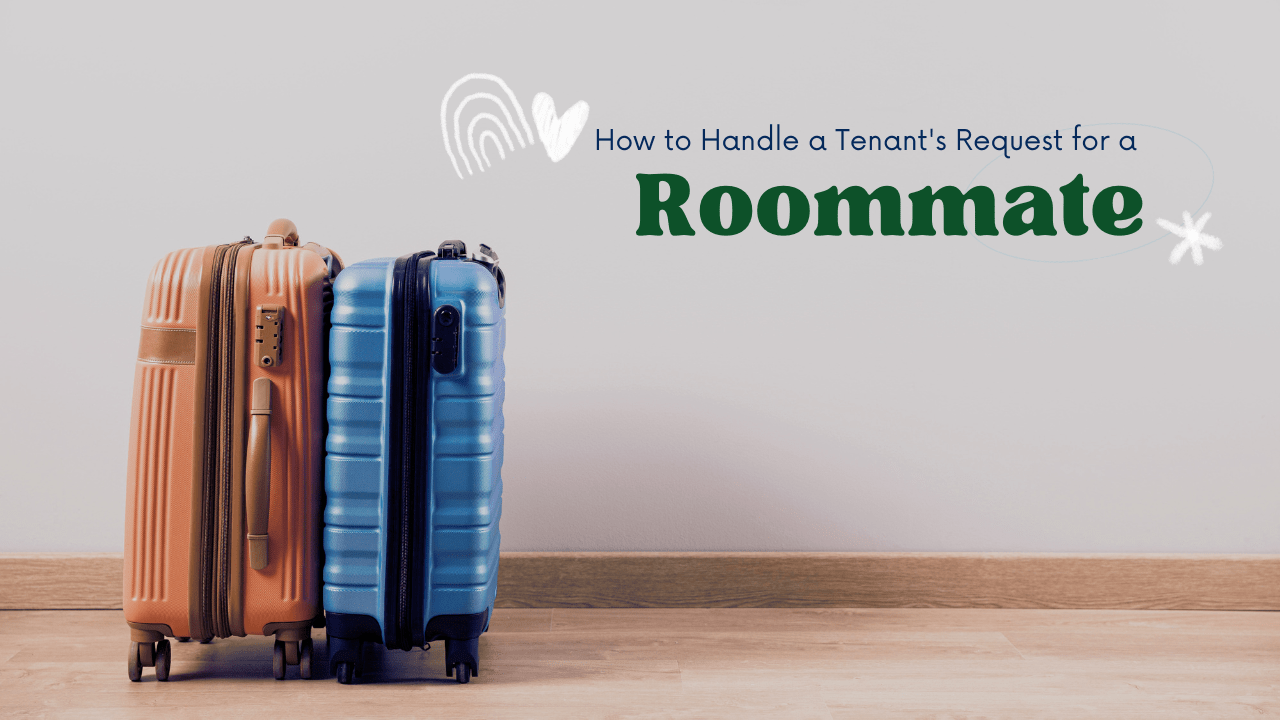When your tenant asks to add a roommate to the Golden, CO home they’re renting from you, it’s actually good news. Your tenant is coming to you and asking for permission, rather than moving another person into the property without having them screened or added to the lease agreement.
There are a number of reasons that a tenant may want a roommate. Perhaps they’re struggling to keep up with the rent and need the financial help. Or, a significant other could be the party moving in. Maybe your tenant is getting married.
Whatever the reason for the request, ask for it in writing, and take these steps to ensure you’re protecting yourself and your property. We’ll also talk a bit about what happens if there’s a conflict between roommates, and what you’ll have to do if you want to evict one of the tenants, but not everyone living in your property.
As always, these situations often involve legal scenarios that may require the help of an attorney. We’re sharing what we know in our experience as a Golden property management company.
Screening Potential Golden Roommates
Before you grant or deny your tenant’s request for a roommate, you’ll have to screen the person who wants to move into the property.
Talk to the potential roommate directly. There’s no need to go through your tenant. You’ll want to get all of the identifying and contact information directly from the individual who wants to become your new tenant. Provide them with an application and screen that application just like you would screen any application.
Check credit. Look at criminal history and evaluate income. Check eviction records and ask the prospective roommate to submit references. Hold this roommate to the same standards as you do in any of your screening. Consistency is important; screen the tenant objectively and make a decision based on the data that you gather.
It’s important that everyone living in your property (18 years of age and older) are included on your lease agreement. This provides a legally binding document to help you enforce lease terms with all residents. The lease also allows you to maintain the joint liability clause for all tenants.
Screening all tenants, including new roommates, is equally important in order to find qualified individuals who have verifiable income, a positive rental history, responsible financial habits and rule-abiding behavior. Tenants that meet your screening criteria will be less likely to cause roommate struggles due to financial burdens or rule-breaking tendencies.
Denying a Roommate Request
You don’t have to approve your tenant’s request for a roommate.
Your current tenant might not like it, but you do have the right to deny the roommate if their qualifications do not match your criteria.
It’s never a good idea to move someone in who isn’t qualified.
Updating Your Lease Agreement
Once you approve a roommate for your existing tenant, you’ll need a new or updated lease agreement to reflect the additional party.
If your lease agreement did not already have this language, make sure it now includes a statement that all tenants in the property are “jointly and severally liable.”
Joint liability is an important inclusion because it means that all roommates are held equally responsible for following the terms of the lease and fulfilling its requirements and responsibilities. If one tenant does something that violates the lease agreement, then all tenants on the lease are held accountable for that violation.
Here’s an example: what if the new roommate moves in a pet without prior approval or authorization? When that happens, both tenants will be responsible for this violation and will be responsible for the consequences.
A joint liability clause added to your lease agreement once a tenant moves in a roommate will offer the best protection for you to avoid any roommate disputes that could lead to rent not being paid or one of the roommates moving out in violation of the lease terms.
Create a lease agreement that includes the roommate.
Decide How to Collect Rent
Is it better to collect a single rental payment every month or a separate rent check from each tenant?
According to best practices, you want to collect one single rental payment. This is often the easiest way to enforce your rent collection policy. There’s less administrative work on your end, and you’ll be treating your roommates as one complete tenant responsible for the full rent amount.
When you accept one rent payment only, it’s less likely that you’ll be drawn into any potential disputes that your tenants are having amongst themselves. If there’s a financial problem that one of them is having, they should work it out between themselves and still manage to come up with what is owed on the first of the month. When one roommate cannot afford their portion, they can talk it through with the other roommate instead of with you.
This, of course, must be included in your lease agreement and in your rent collection policy.
Preparing for Roommate Disputes
Your tenant requested a roommate, and you agreed.
What happens when there’s a dispute or a conflict between roommates? Is there any point at which you, as the property owner, need to get involved?
Hopefully, the answer to that is – no.
One way to prevent the escalation of disputes between your roommate tenants is to recommend a Roommate Agreement. This is not a document that you need to create or provide; it has little to do with you as the landlord. But, if you suggest this as an extra way for roommates to protect themselves, you might save yourself and your residents a lot of headaches and frustrations. These agreements provide basic expectations between co-tenants and reference the shared responsibilities between roommates living in a rental home. A Roommate Agreement could include:
- Date of the Roommate Agreement
- Names of roommates/tenants
- Property address
- Amount of rent and portion of rent and utilities to be paid by each roommate.
- Security deposit (if the initial tenant paid the entire security deposit and a roommate moves in later without paying a security deposit, the agreement should reference how this will be handled. The initial roommate may be entitled to the full return, but if a portion is withheld due to damage, the new tenant may have some financial responsibility there).
- Instruction on how each roommate will pay for damages caused by them or their guests
- Instruction on how each roommate will pay their share of the cost of any repairs, improvements or expenses associated with the running of the household. For example, who pays for the light bulb that needs to be replaced?
The Roommate Agreement can also include any other matters that the initial tenant and the new roommate think are appropriate, including guidelines for cleaning, quiet hours, food, and guests.
Despite a Roommate Agreement and a generally good relationship, there may be a conflict that arises between your tenants.
There could be an issue of the paying of the rent. There could be a lease violation or damage that’s done to the property by one tenant. There could be issues in deciding on or agreeing to pets and guests. Maybe one roommate has higher standards of cleanliness than the other.
If there’s a lease violation, you have the right to terminate the lease for both of your tenants, rather than just the roommate who is violating the lease. You aren’t required to evict them, but you do have the right.
If your tenant and their roommate have a serious disagreement with a roommate and someone wants to move out, you’ll have to consult the lease for how this situation is meant to be handled
When you or one of your vendors or a neighbor notices an extra person always at the property.
There’s a big difference between a guest and a tenant. If you notice that your tenant has had a guest in the property for more than two weeks or so, you might want to inquire about the intentions of that person. When a tenant specifically asks to add a roommate to the lease agreement, you’ll want a completed application and a full tenant screening.
This is sometimes an ideal situation for your Golden rental property, especially if your existing tenant needs financial help from another person in the property.
 We’re happy to talk through the process of adding a roommate if you still have questions. Please don’t hesitate to contact us at Laurel Property Services, Inc. In addition to providing property management in Golden, we also serve Wheatridge, Morrison, Lakewood, Arvada, and Genesee, CO.
We’re happy to talk through the process of adding a roommate if you still have questions. Please don’t hesitate to contact us at Laurel Property Services, Inc. In addition to providing property management in Golden, we also serve Wheatridge, Morrison, Lakewood, Arvada, and Genesee, CO.



